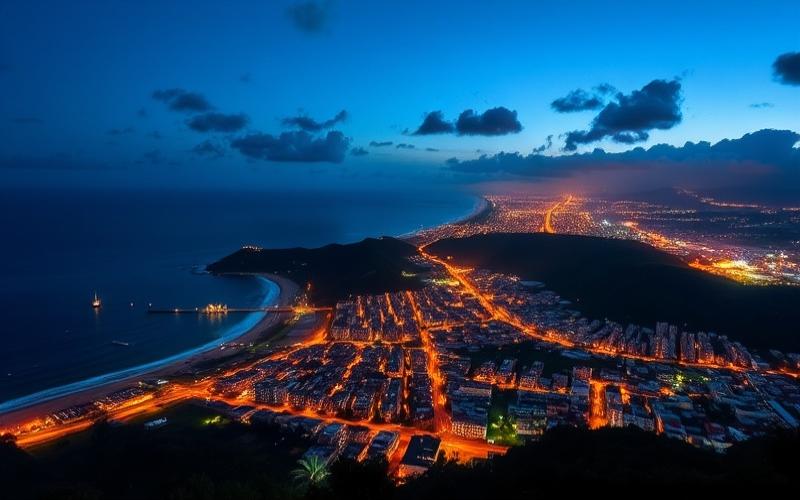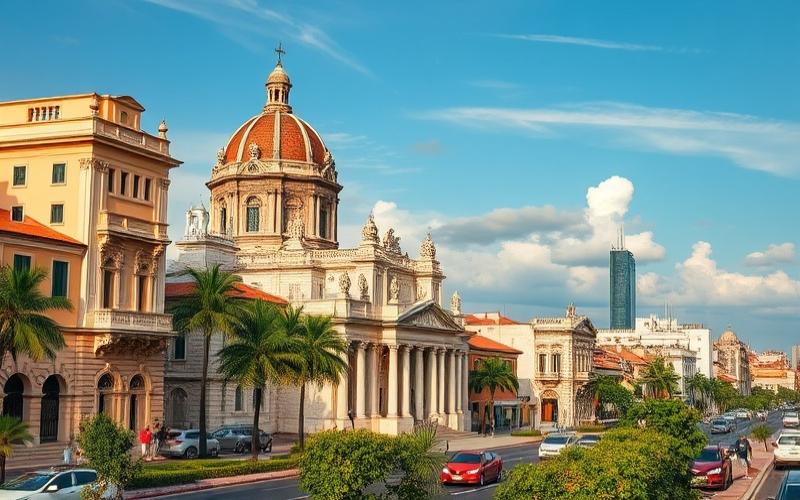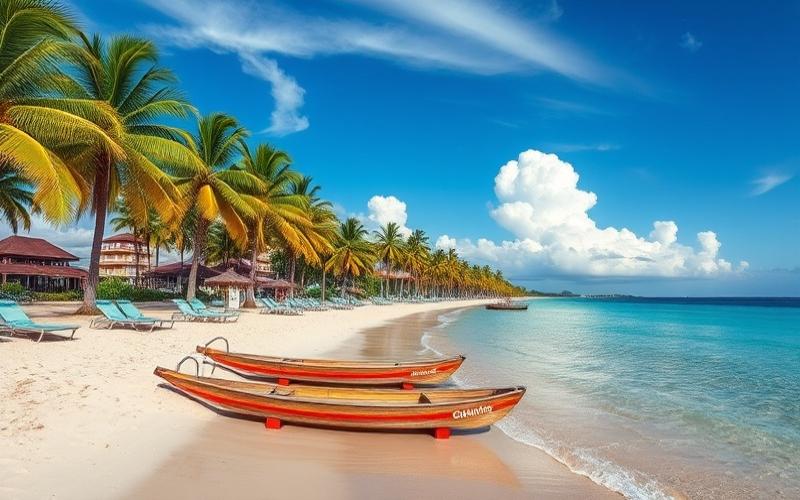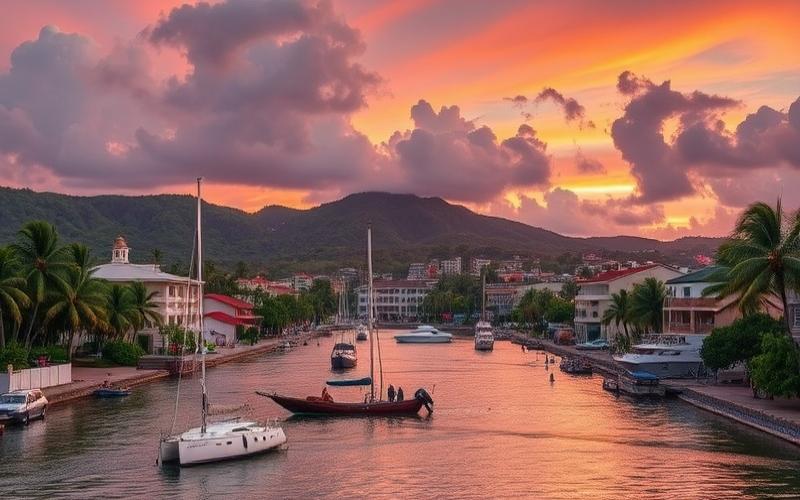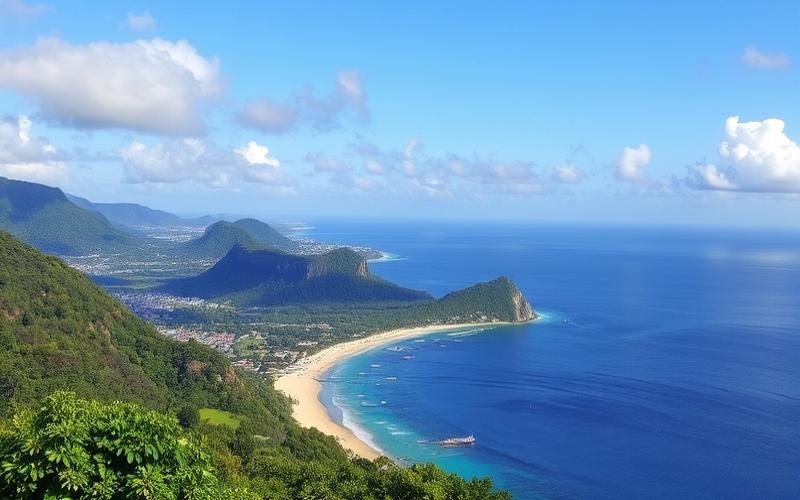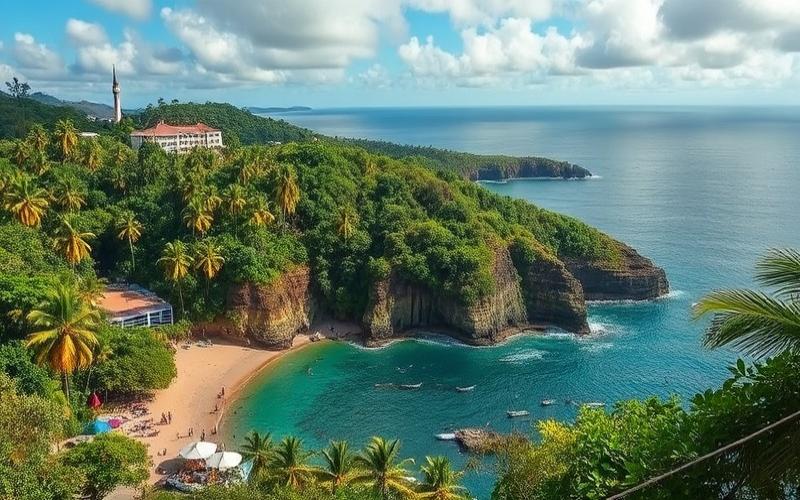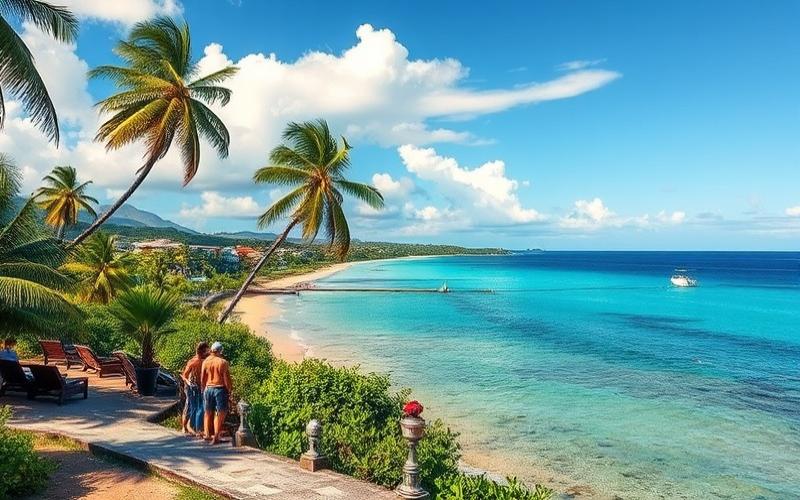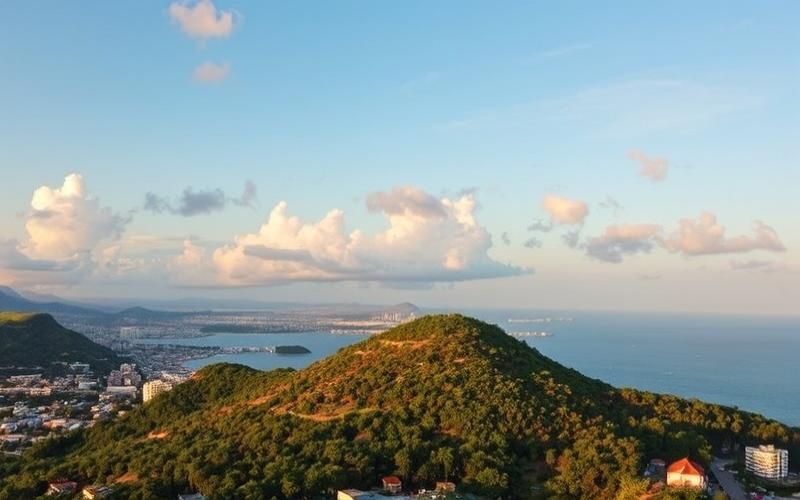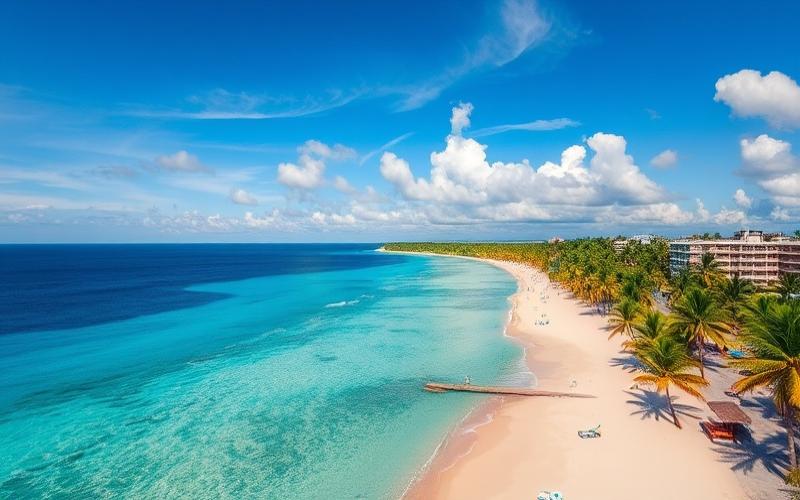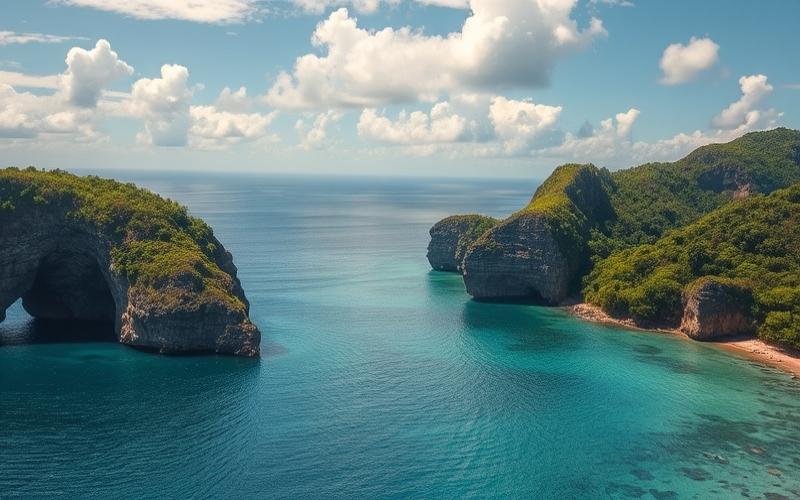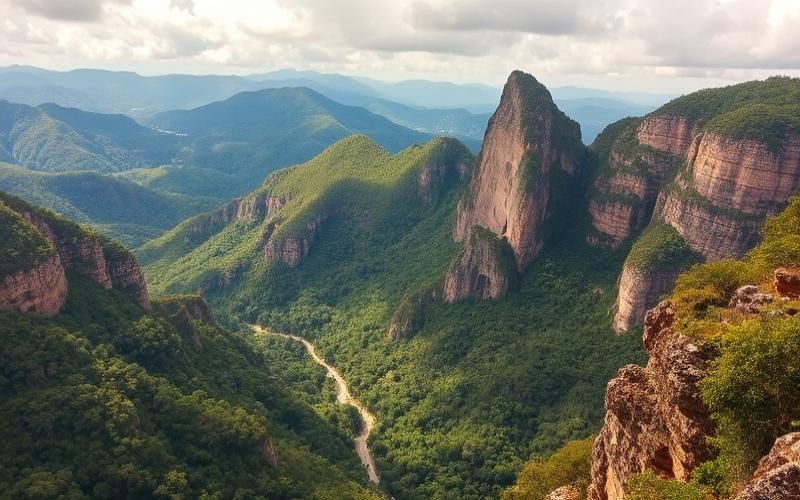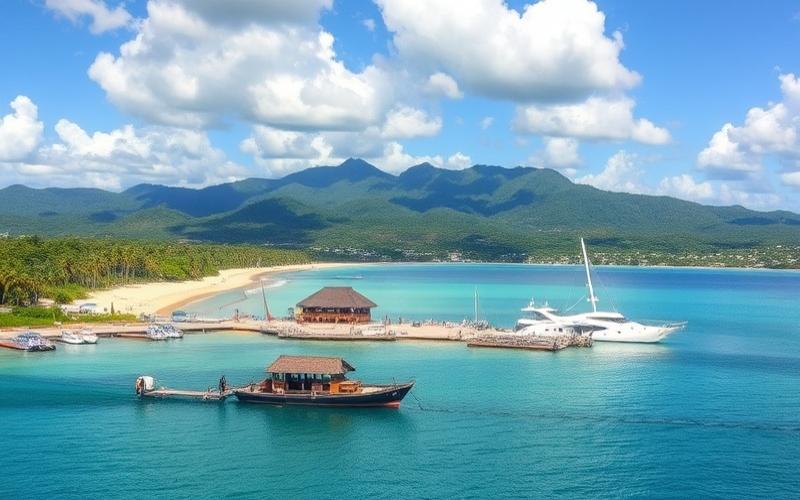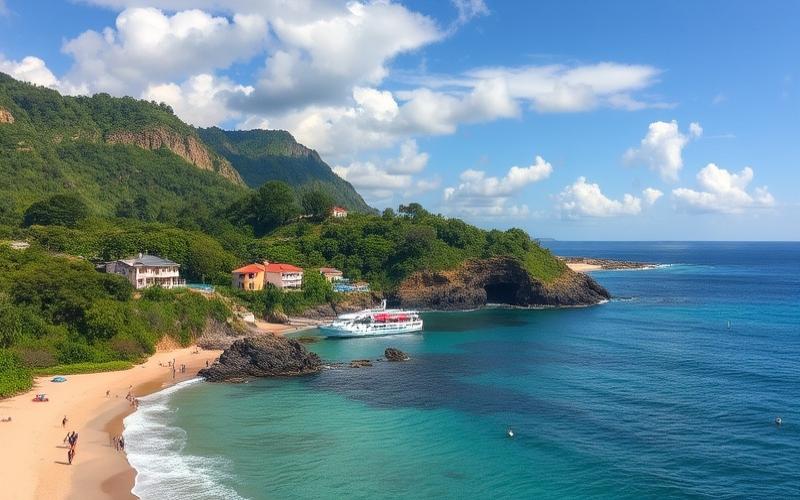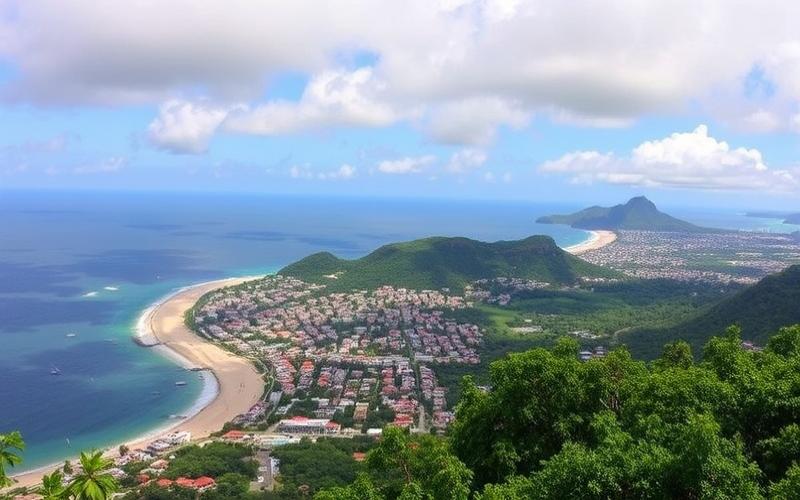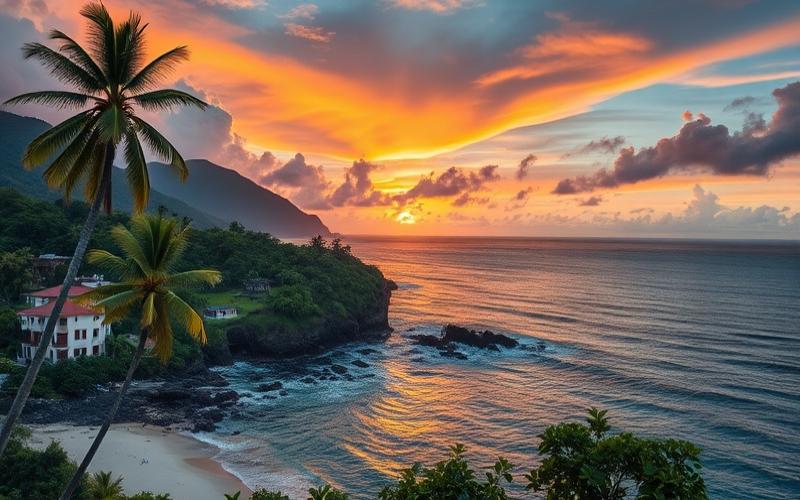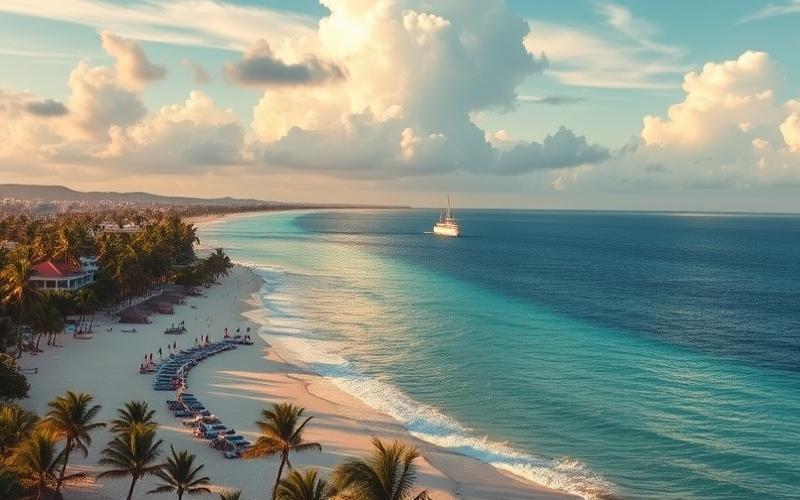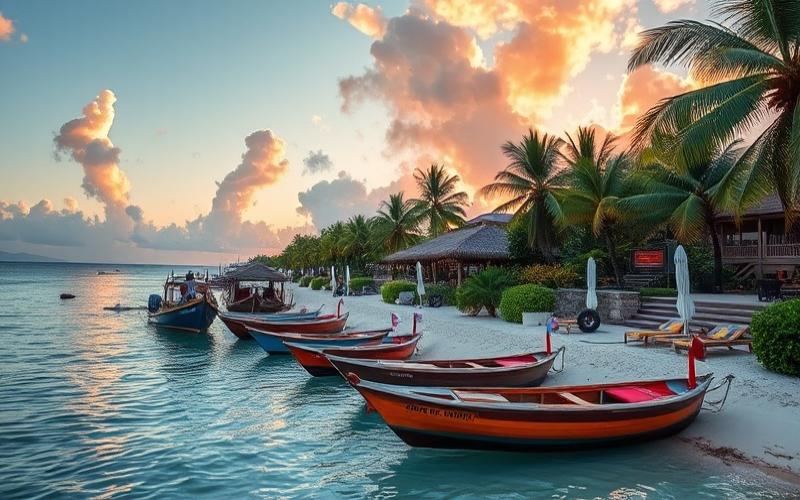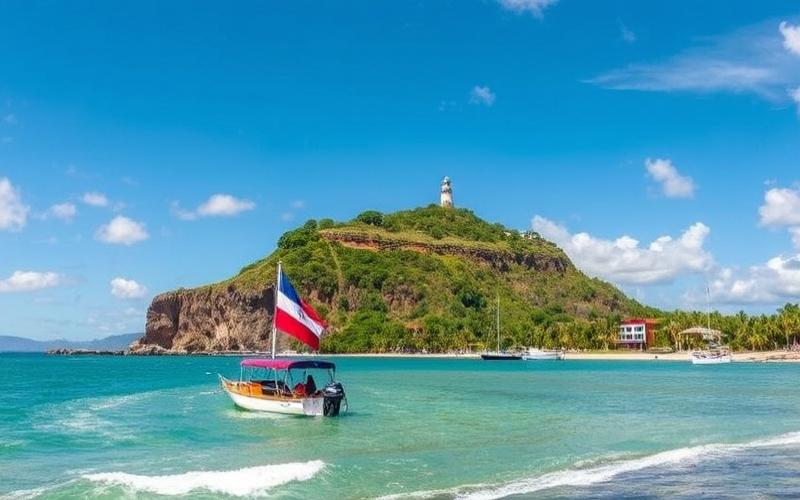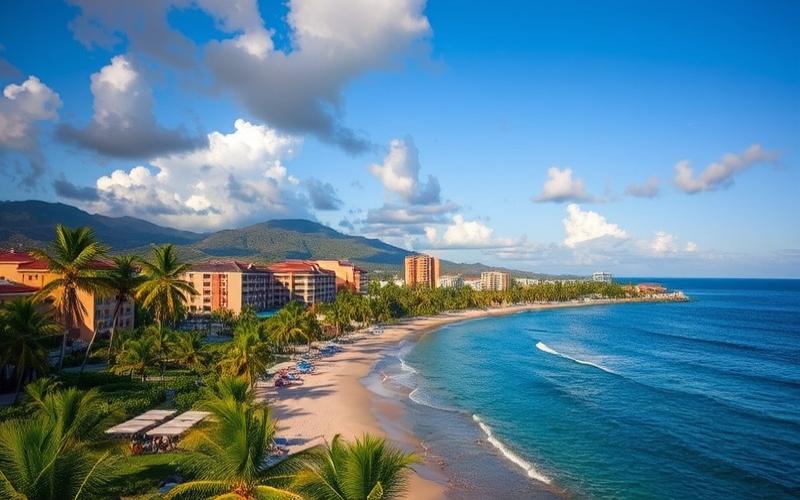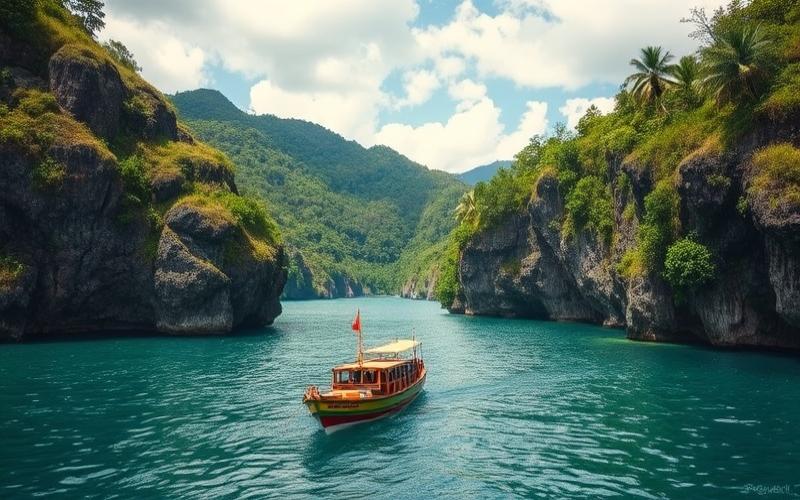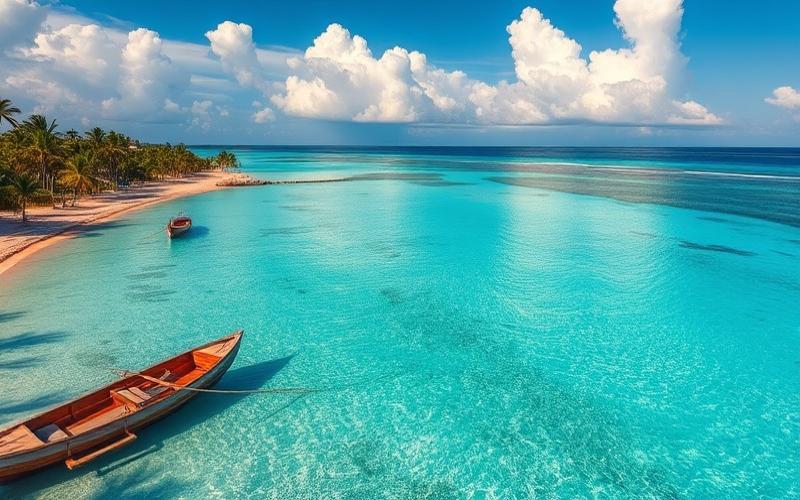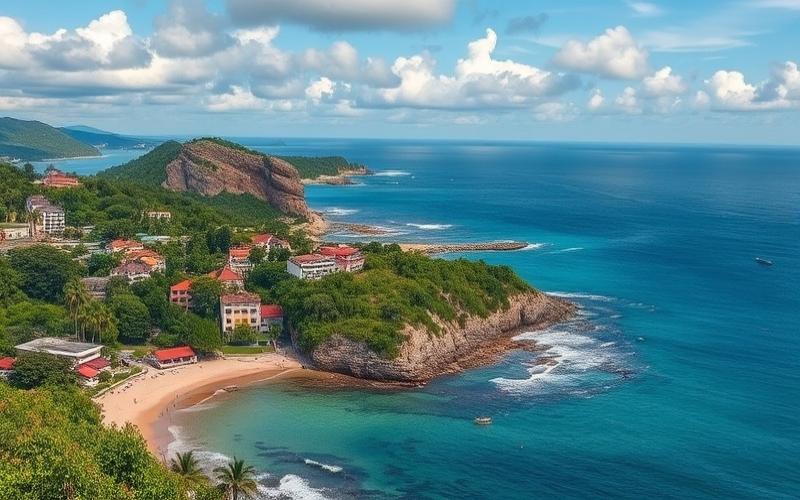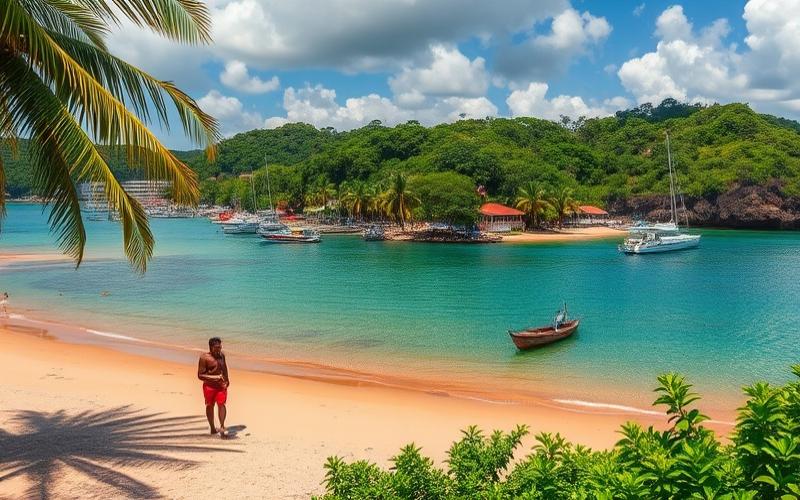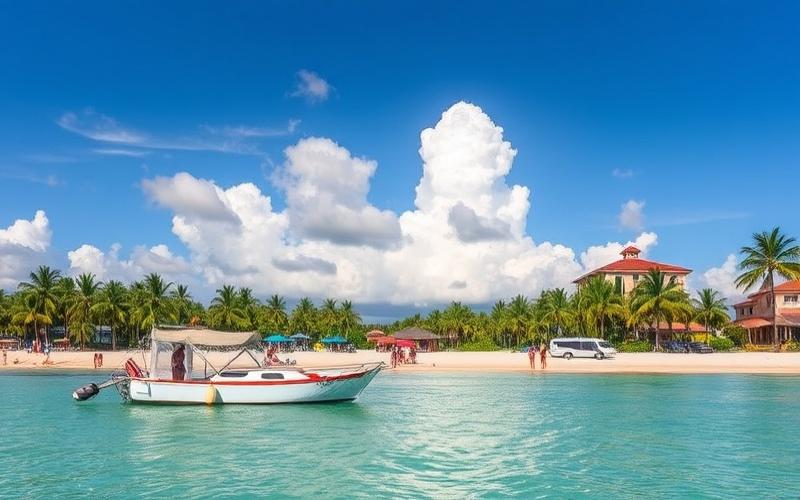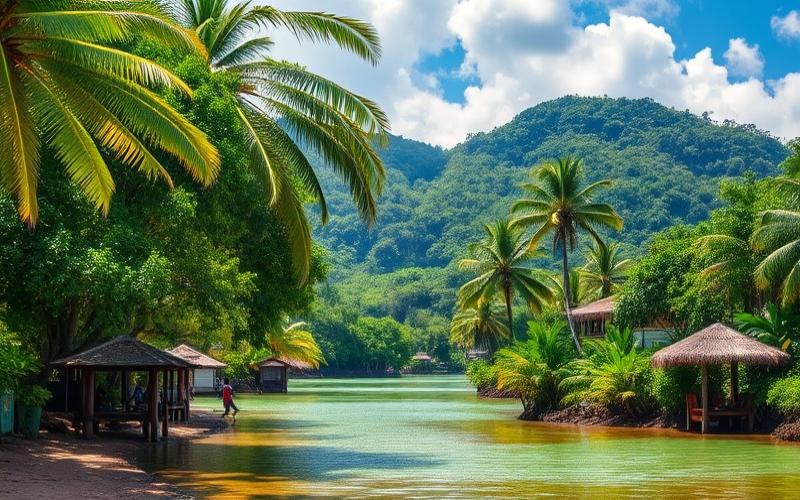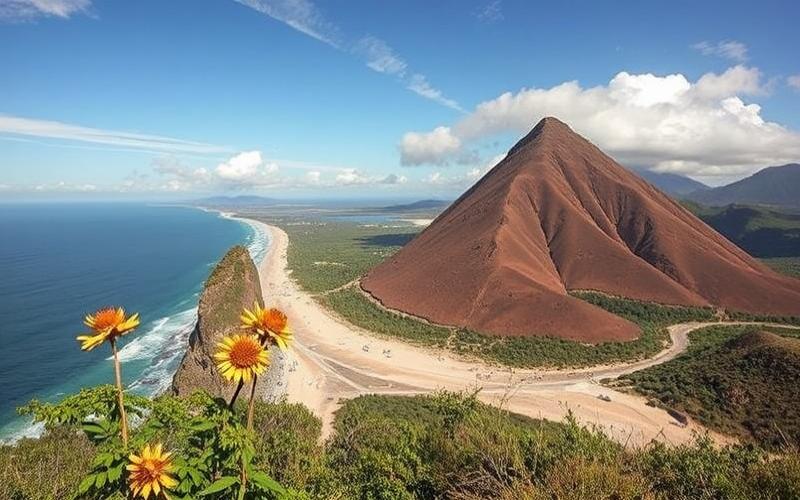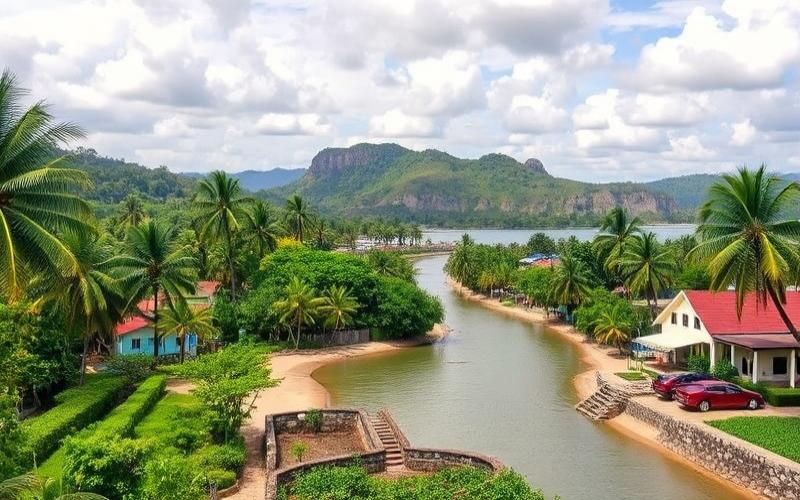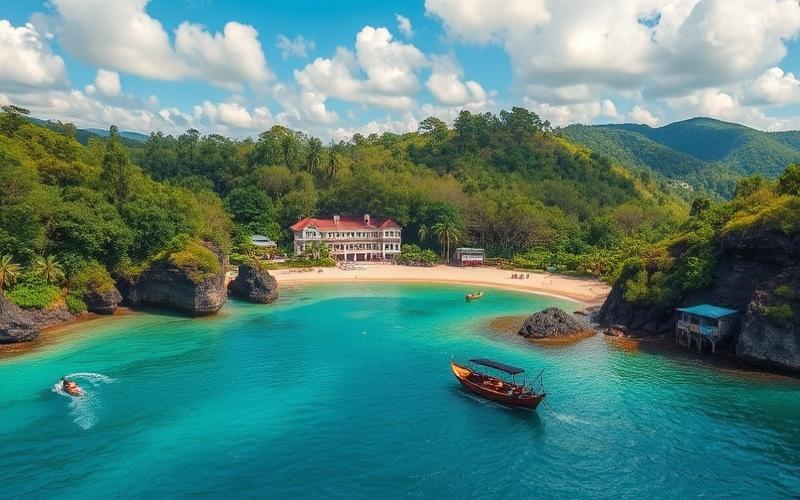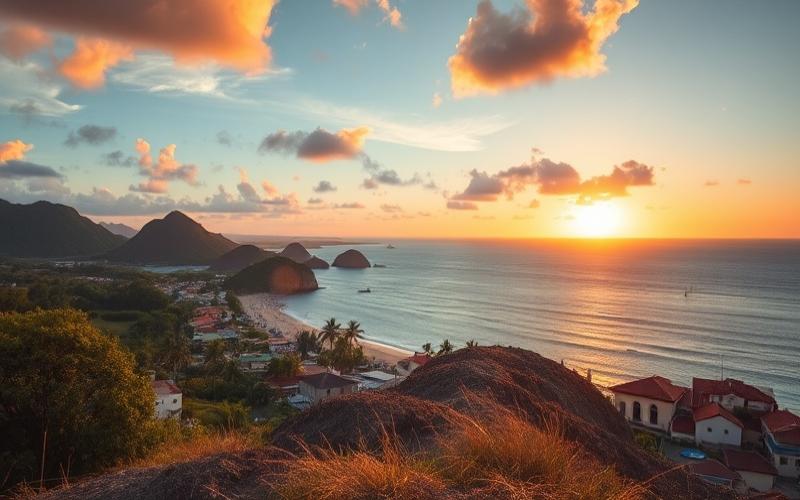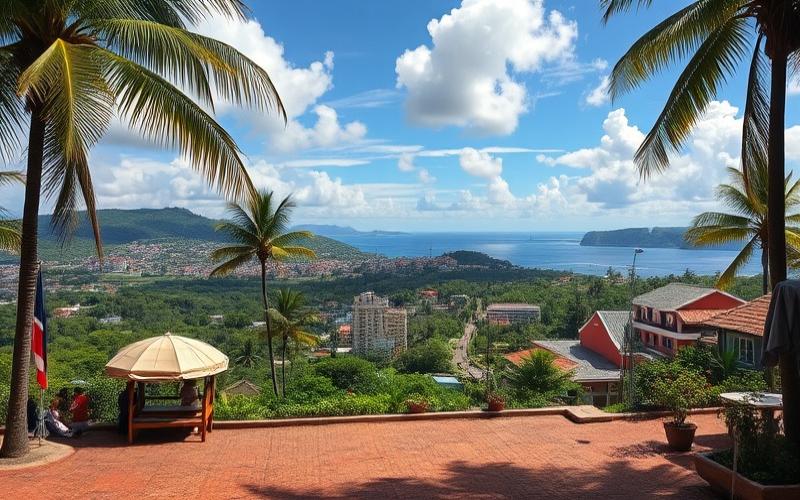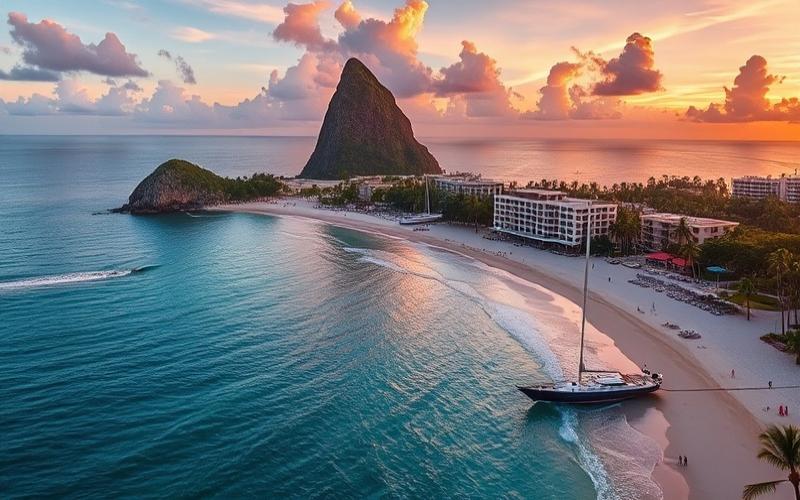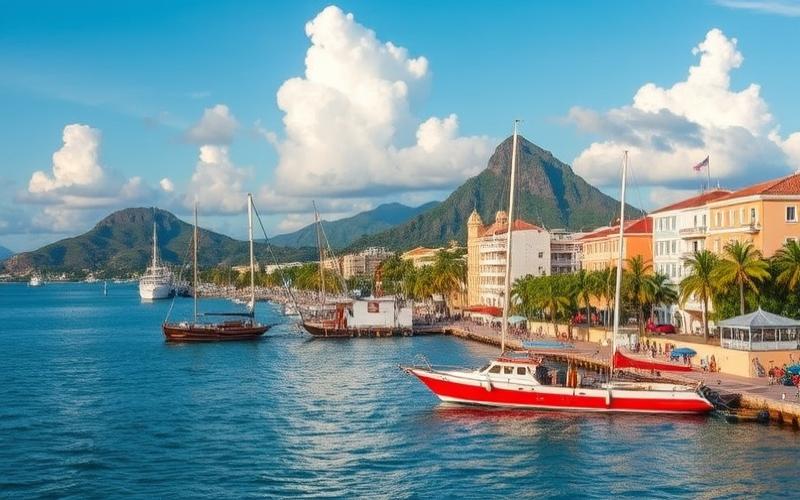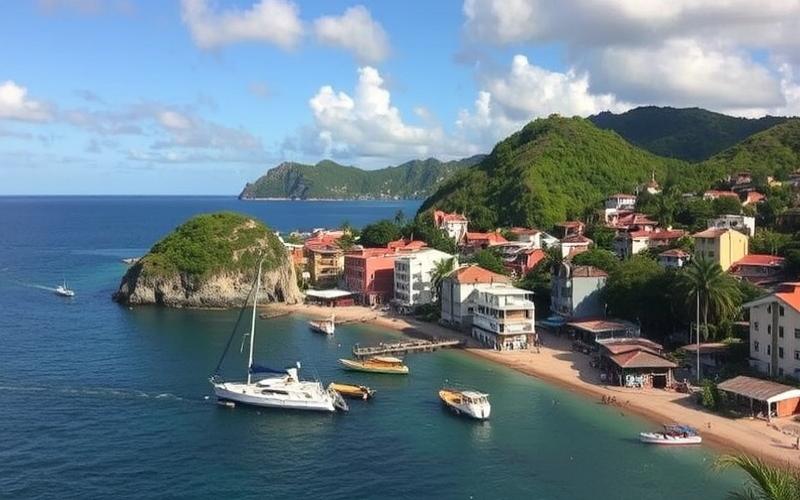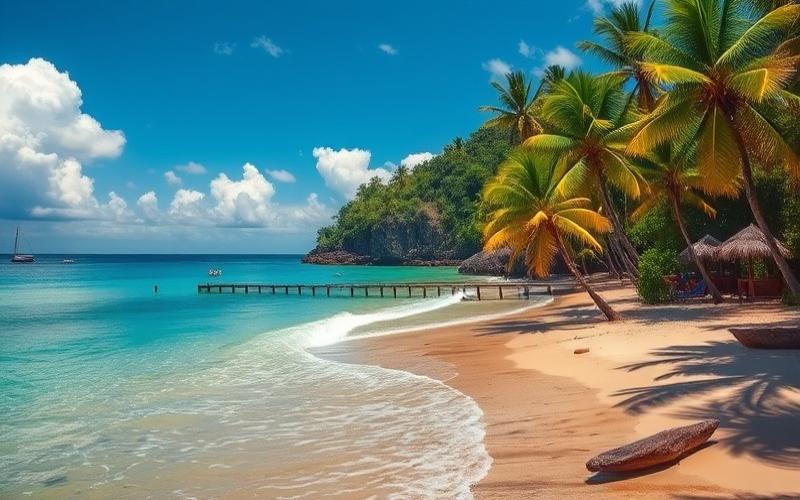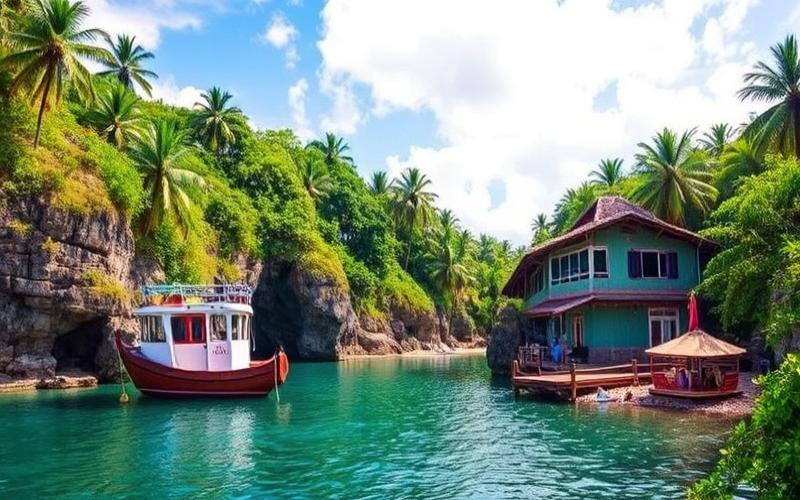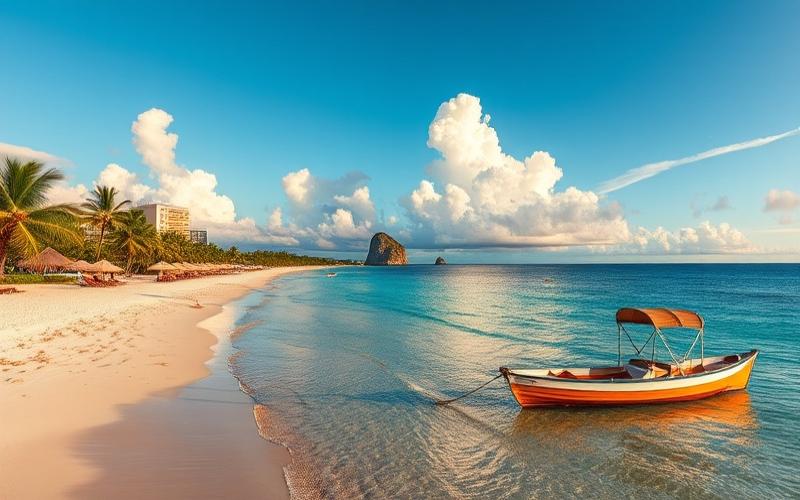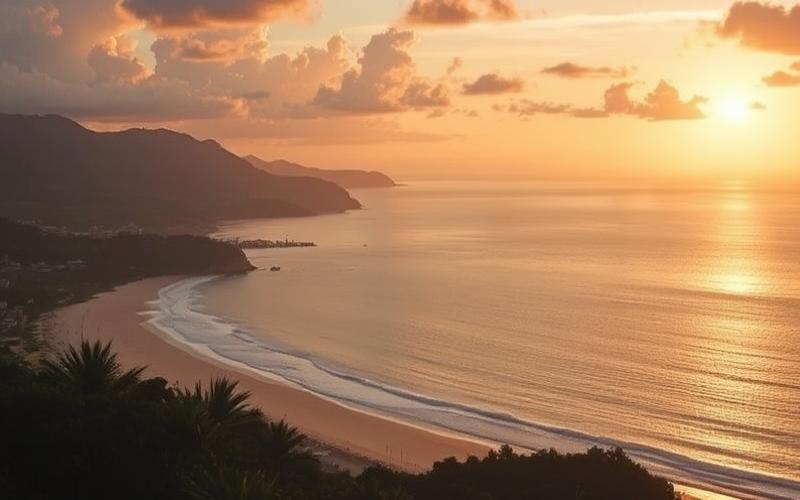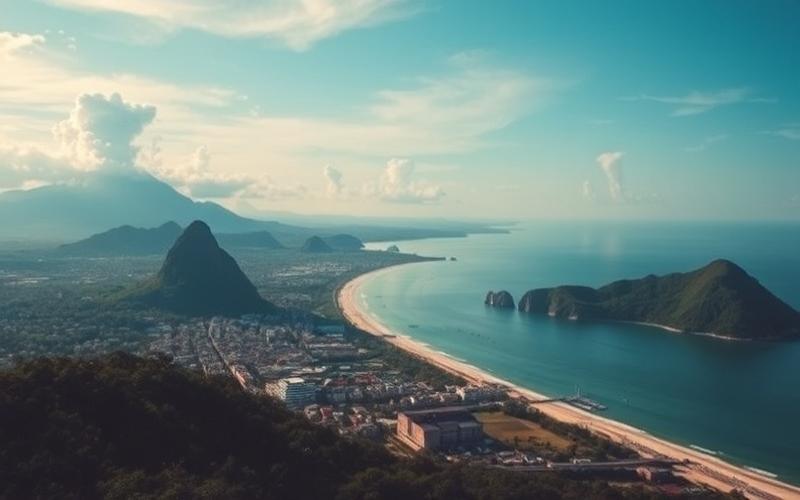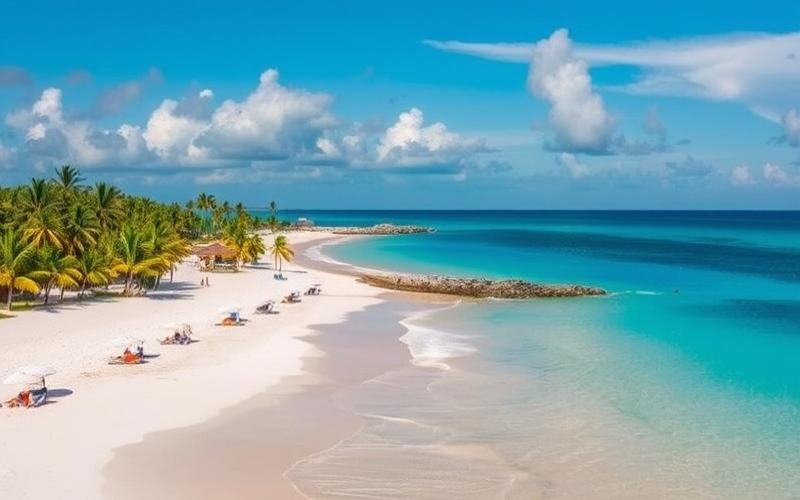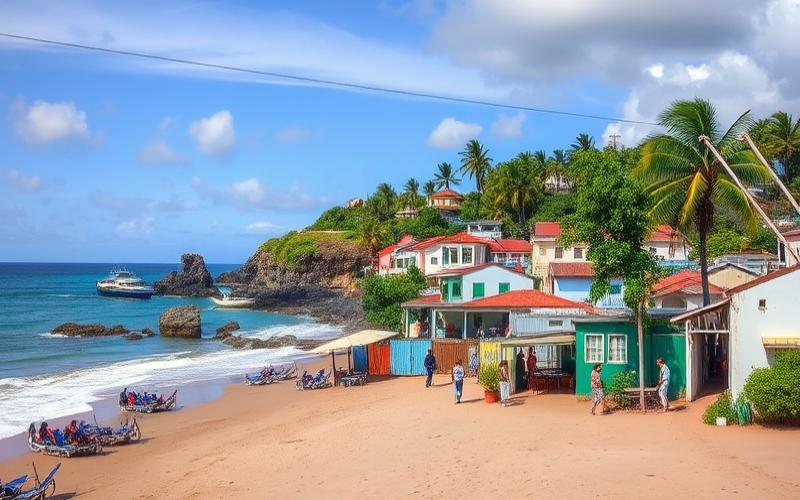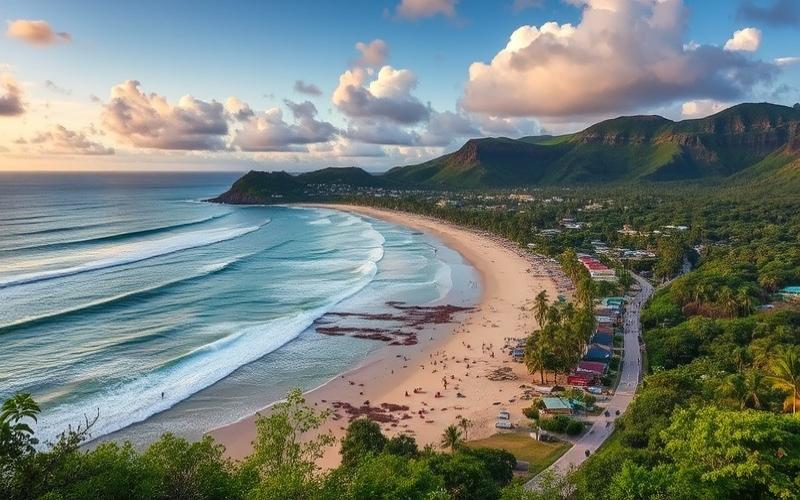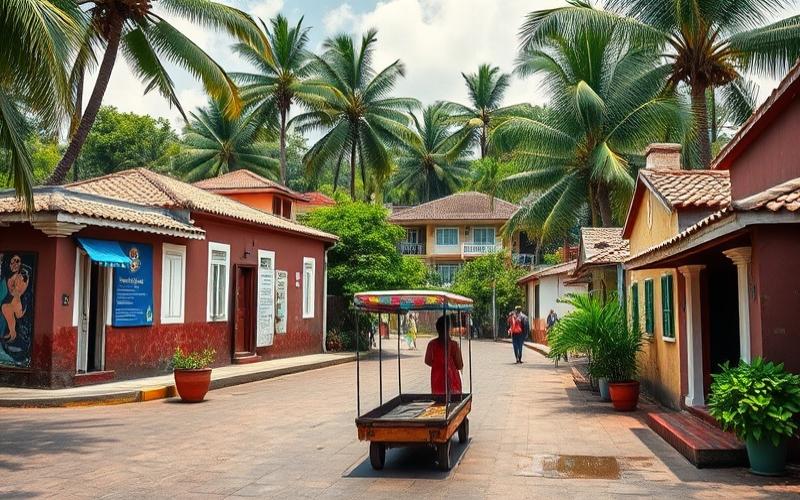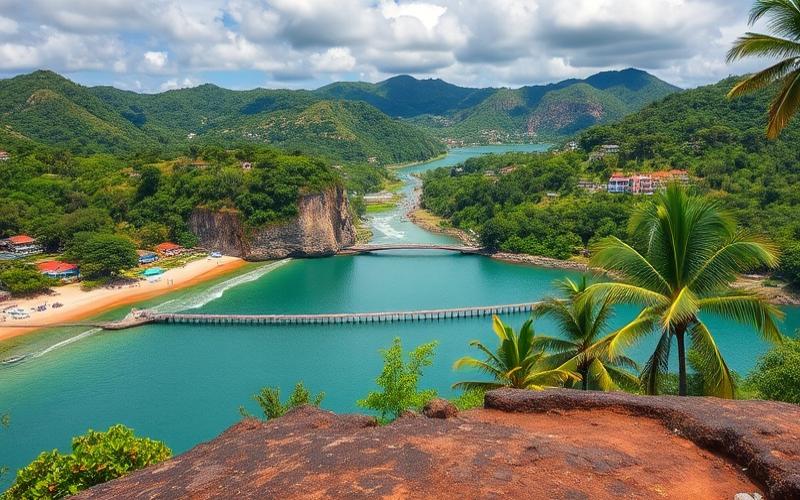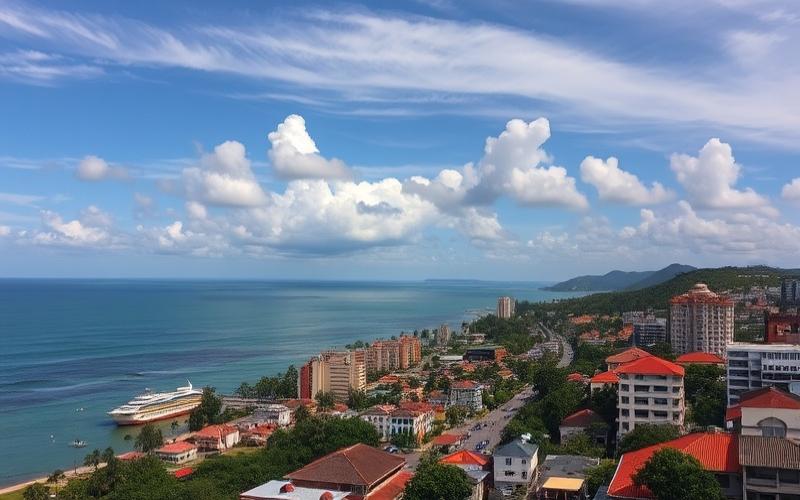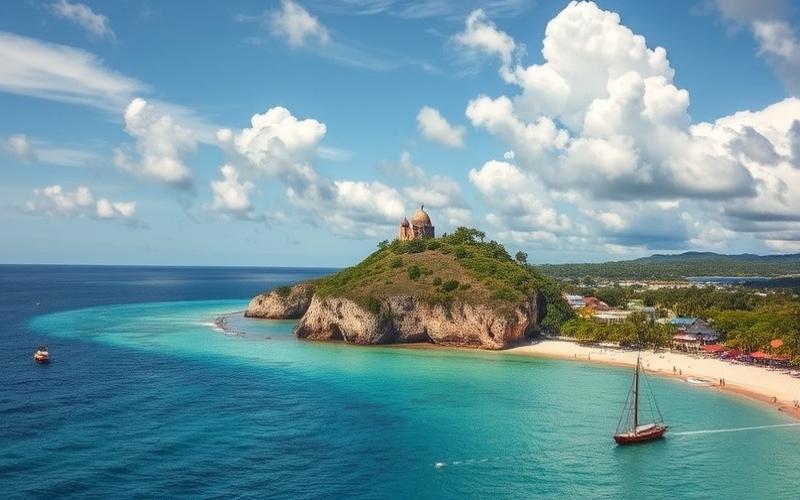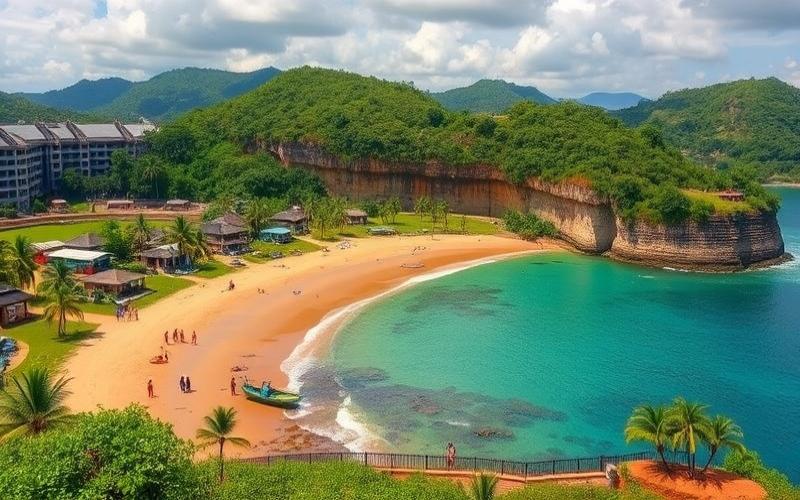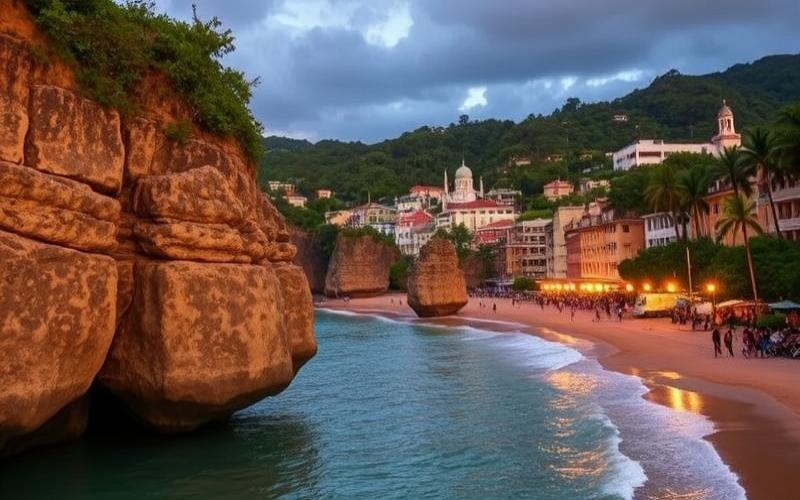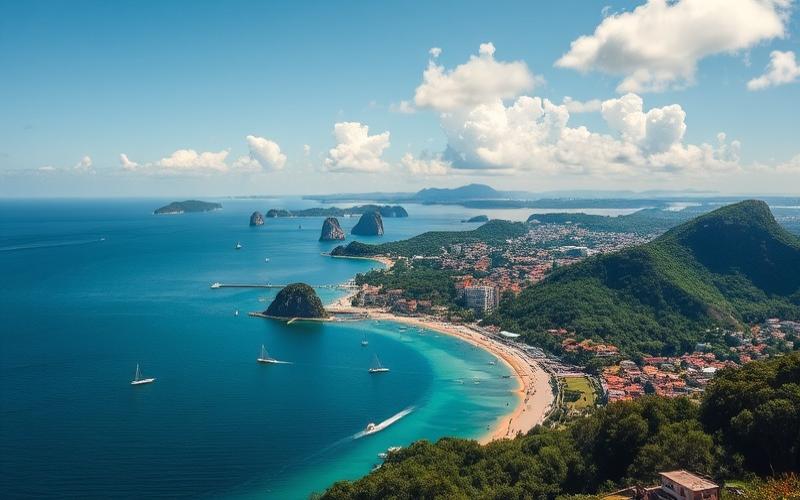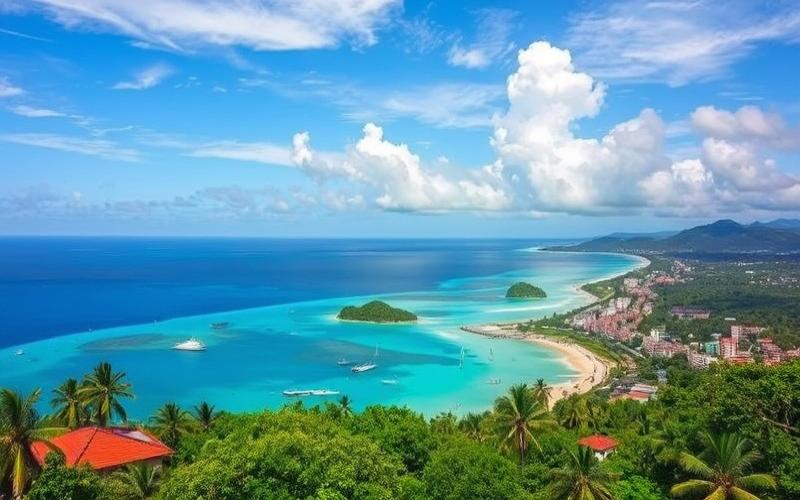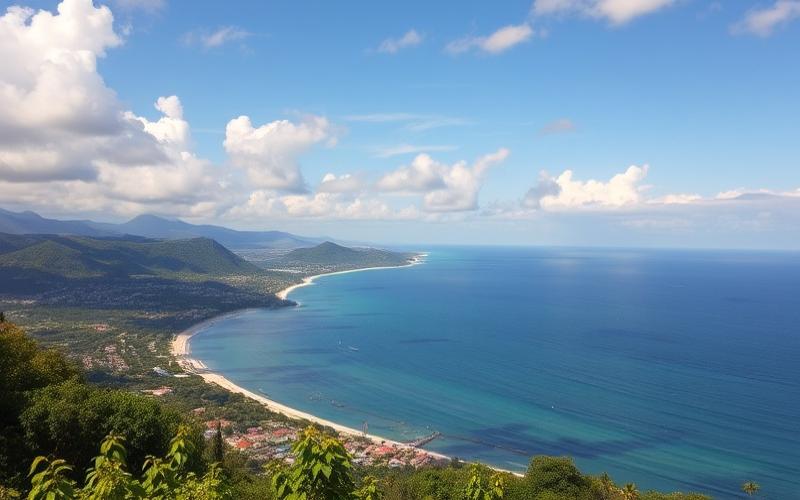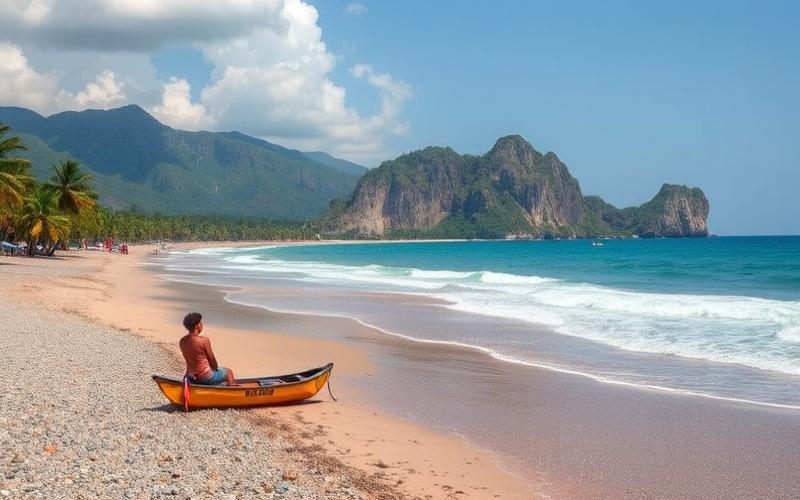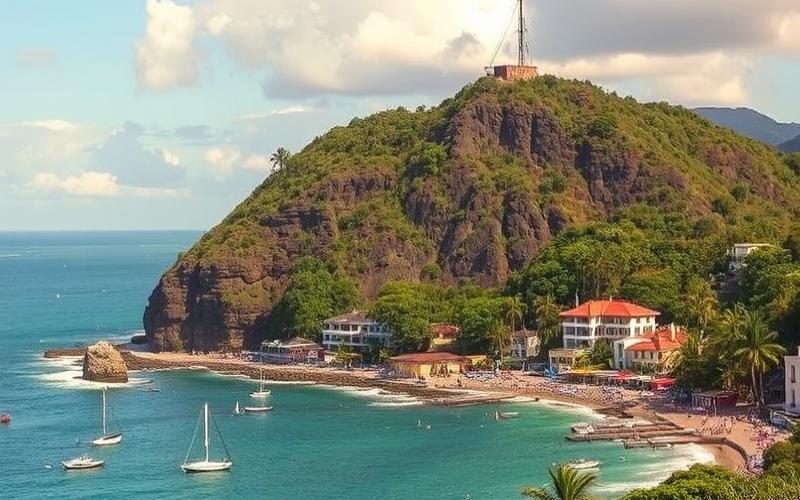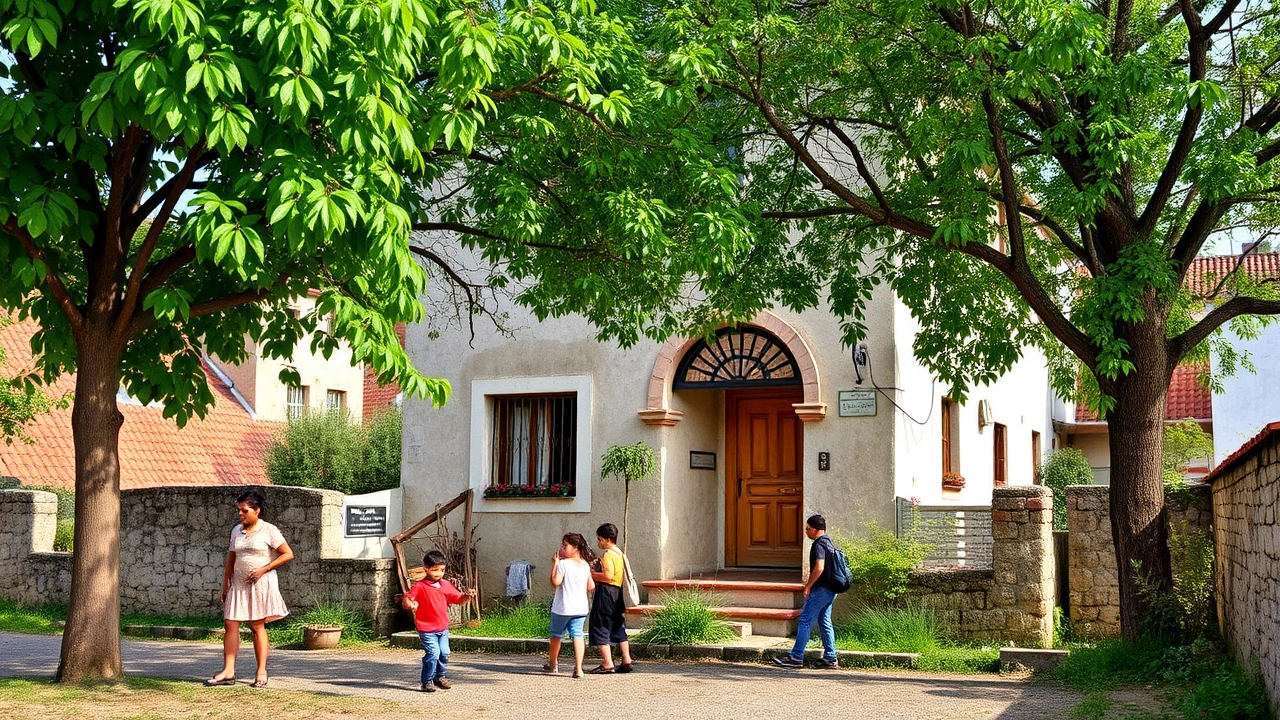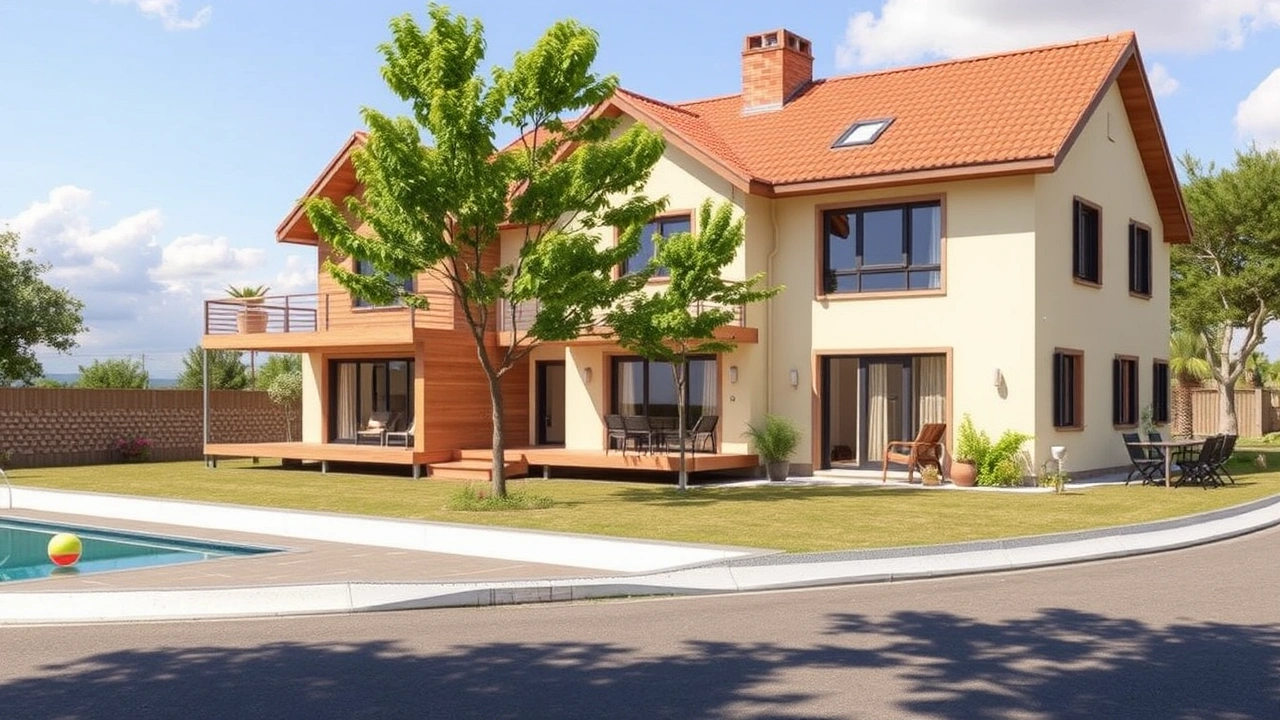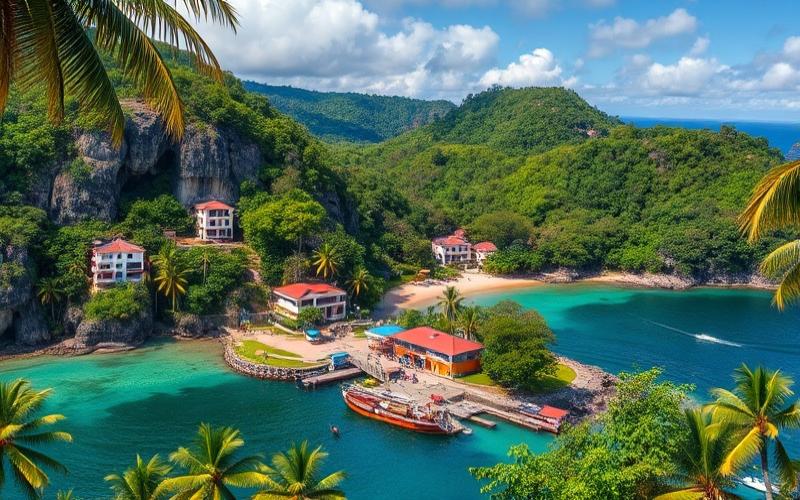
 Published on and written by Cyril Jarnias
Published on and written by Cyril Jarnias
Investing in Hospitality in the Dominican Republic
Investing in hospitality in the Dominican Republic can prove to be a lucrative opportunity, given the country’s appeal to tourists each year thanks to its paradise beaches and unique culture. However, buying a hotel requires meticulous preparation and a thorough understanding of the local market.
This article will guide you through a comprehensive checklist to help you make informed decisions, from selecting the ideal location to navigating local regulations. Don’t let the complexity of the process overwhelm you; with the right resources and advice, you can turn this dream into a prosperous reality.
Overview of the Hospitality Sector in the Dominican Republic
The Dominican hospitality sector shows robust growth, supported by continuous tourist influx and major investments in real estate and tourism infrastructure.
Recent Hotel Market Evolution
- The Dominican Republic stands as the leading tourist destination in the Caribbean, with steady growth in international arrivals.
- New hotel openings – primarily in the luxury and all-inclusive segments – are multiplying, especially in Punta Cana, Miches, and Cap Cana.
- By 2025, over $1.3 billion in investments are expected in the hotel sector; these projects are projected to generate more than 33,000 direct or indirect jobs.
Average Occupancy Rates & Trends
- The average occupancy rate remains high in key coastal areas (Punta Cana regularly exceeds 80% during peak season).
- The trend is toward upscaling: proliferation of five-star resorts, development of discreet luxury (boutique hotels), explosion of all-inclusive offerings.
- Diversification toward more experiential tourism: ecotourism in Samaná or Puerto Plata; urban tourism in Santo Domingo; wellness & golf in several recent resorts.
| Destination | High Occupancy Rate | Recent Investments | Dominant Offering |
| Punta Cana | Yes | International Resorts | All-Inclusive / Luxury |
| Cap Cana/Miches | Yes | Premium Hotels | Luxury / Unique Experiences |
| Samaná | Medium-High | Targeted Hotel Growth | Ecotourism / Nature |
| Puerto Plata | Medium | Real Estate Revival | Family / Cultural |
Main destinations with significant hotel investment:
- Punta Cana, a true beach hub with nearly 77% of international arrivals via its airport
- Miches, an emerging new area hosting Four Seasons Miches or W Hotels
- Cap Cana, a luxurious residential and hotel development (St. Regis Cap Cana)
- Other emerging hubs include Samaná, Puerto Plata, Santiago, and La Romana
Diversity of Accommodation Offerings
- Private villas
- Modern apartments
- All-inclusive resorts
- Luxury boutique hotels
Examples of price per square meter for hotels/tourist real estate:
| Location | Average Price/m² (€) |
| Punta Cana | 2,695 |
| Las Terrenas | 1,694 |
| Santo Domingo | 1,368 |
| Sosúa | 1,247 |
This diversity caters to both investors and travelers seeking standardized comfort or personalized experiences.
Recent Tourism Statistics
- Over seven million annual tourist arrivals recorded before the pandemic; dynamic recovery since mid-2023.
In early 2025:
- Nearly 70,000 French visitors between January-April alone
- Nearly half a million (500,000) new visitors expected thanks to recent agreements signed with travel operators
Economic Impact
Tourism accounts for over a quarter of the national GDP. It remains an essential pillar for creating direct/indirect local employment and for national real estate dynamism.
Opportunities
- Political stability & attractive tax incentives for foreign investors;
- Growing demand across all hotel segments;
- Geographic diversification favoring the rapid emergence of new inland destinations;
Challenges
- Increased regional competition with Cuba/Mexico/Jamaica;
- Marked dependence on the “all-inclusive” beach segment;
- Constant need for skilled labor and continuous improvement of environmental/social standards;
The Dominican Republic thus offers a favorable ecosystem for hotel acquisition: strong potential for seasonal/tourist rental but an absolute necessity for integrated professional management in the face of global competitive challenges.
Good to Know:
The hospitality sector in the Dominican Republic is experiencing dynamic evolution, with an average occupancy rate of around 75% in 2023, highlighting sustained tourism growth. Punta Cana, Santo Domingo, and Puerto Plata stand out as the main hotel investment destinations, attracting capital thanks to their tourist popularity and developed infrastructure. In 2022, the country welcomed over 7.5 million tourists, marking a significant increase compared to previous years. This influx is driven by the diversity of accommodation offerings, ranging from luxury complexes to more modest inns, thus catering to a varied clientele. However, buying a hotel involves challenges, including managing seasonality and increasing competition, despite the economic opportunities offered by the sector which constitutes over 15% of the national GDP. Potential investors must therefore assess market fluctuations and tourist demand trends to maximize the profitability of their hotel project.
Tips for Buying a Hotel in the Dominican Republic
Criteria to Evaluate Before Purchase
- Strategic Location: prioritize areas near beaches, vibrant city centers, or major tourist sites to maximize occupancy.
- Proximity to Popular Tourist Areas: hotels located in Punta Cana, Las Terrenas, or Santo Domingo benefit from high tourist demand.
- Local Real Estate Market Dynamics: analyze sector growth, average occupancy rates, and compare prices per square meter by region.
| Criterion | Importance | Example |
|---|---|---|
| Location | Maximize occupancy rate | Hotel 1 km from the beach |
| Proximity to tourist sites | Attract international clientele | Near Punta Cana or Las Terrenas |
| Local Market | Profitability and resale potential | Price/m², occupancy rate |
Administrative Steps to Follow
- Verification of property title and absence of mortgage or dispute.
- Signing a sales agreement, often with a deposit.
- Drafting the deed of sale before a Dominican notary.
- Registering the transaction with the local land registry.
- Payment of property transfer taxes (generally around 3% of purchase price), legal fees, notary fees, and possible registration fees.
- For foreigners: no purchase restrictions, but need for specialized assistance for legal compliance.
Due Diligence Recommendations
- Require complete documentation on property titles, operating permits, and tax history.
- Analyze the hotel’s reputation via customer reviews, booking platforms, and management history.
- Verify employment contracts, suppliers, and equipment condition.
Need to Consult Local Experts
- Engage a real estate law specialist for title verification and contract drafting.
- Rely on an experienced real estate agent familiar with local market dynamics.
- Use a certified public accountant for financial and tax analysis of the operation.
Financial Considerations
- Budget for ongoing maintenance, upgrades, and potential renovations (plumbing, electricity, decor).
- Include property taxes, condominium fees, and hotel management costs.
- Explore financing options with local banks (sometimes accessible to foreigners) or through foreign institutions.
| Expense | Estimation / Observation |
|---|---|
| Maintenance & Renovations | 10–20% of purchase price over 5 years |
| Transfer Taxes | Approximately 3% of purchase price |
| Legal and Notary Fees | 1–2% of purchase price |
| Annual Property Taxes | Varies by location |
Post-Acquisition Business Strategy
- Study tourism trends in the Dominican Republic: importance of beach tourism, ecotourism, and all-inclusive offerings.
- Adapt the offering to customer expectations: reliable Wi-Fi, local experiences, quality dining, on-site activities.
- Develop a strong identity and presence on international booking platforms.
- Implement flexible management policies to adapt to seasonal variations and market changes.
Buying a hotel in the Dominican Republic requires rigorous preparation, support from local professionals, and an adapted business strategy to ensure the investment’s profitability and sustainability.
Good to Know:
Evaluating the hotel’s location for its proximity to popular tourist areas and understanding the local real estate market dynamics is essential before buying in the Dominican Republic. It is crucial to follow the administrative steps for acquisition, including understanding legal obligations, taxes, and associated fees. Performing due diligence by verifying property titles and the hotel’s management history is paramount to avoid unpleasant surprises. Working with local experts, such as lawyers and real estate agents, ensures in-depth knowledge of laws and the market. Budget for maintenance and renovation costs, and explore financing options, both local and international. Developing a post-acquisition business strategy aligned with tourism trends and customer expectations can maximize the success of your hotel investment.
Due Diligence and Key Points for Investing in Hospitality
The due diligence process when buying a hotel in the Dominican Republic requires a detailed analysis of legal, financial, and operational aspects to secure the investment and avoid major risks.
Key Process Steps:
- Verification of the property’s legal status (ownership, titles, absence of mortgage or disputes).
- Review of hotel operating permits, business licenses, and compliance with local regulations.
- Check of tax obligations: paid property taxes, absence of tax debts or litigation.
- Complete physical inspection: general infrastructure (buildings), technical equipment (air conditioning, plumbing), compliance with safety standards.
- Analysis of current contracts (suppliers, employees) and their transferability after the transaction.
| Aspect | Points to Verify |
|---|---|
| Legal | Property Titles; Permits; Potential Disputes |
| Tax | Taxes Paid; Debts; Official Documents |
| Operational | General Condition; Supplier/Employee Contracts |
In-Depth Financial Analysis:
- Study of financial statements over several years to assess real profitability and detect any accounting anomalies.
- Verification of consistency between displayed operating expenses and standard hotel industry ratios.
- Assessment of the asking price relative to the real book value of assets.
Commercial Evaluation and Reputation:
- Reputation in the local/international market via online customer reviews and specialized platforms
- Average occupancy rate according to tourist seasonality
- Positioning relative to competition in the sector
Thorough Technical Inspection:
Engage a qualified professional to inspect:
- General structure
- Electrical/hydraulic installations
- Compliance with environmental standards
Identification of Risks Specific to the Dominican Context:
- Seasonal fluctuations linked to international tourism
- Vulnerability to extreme weather events (hurricanes)
- Dependence on local tourism development
Practical Tips:
Engage a local specialized lawyer for all legal checks. Plan an exhaustive technical inspection before signing. Never finalize without having validated every official document related to the establishment.
Strategic Location Choice:
To maximize commercial potential:
| Criterion | Recommendation |
|---|---|
| Tourist Area | Prefer booming sectors |
| Transport Accessibility | Proximity to airport/main road arteries |
| Future Projects | Examine planned urban development |
Also familiarize yourself with local plans related to tourism development so that your investment fully benefits from new traveler flows while remaining accessible via major logistical routes.
Rigorous application of the above process is essential to guarantee a smooth acquisition that respects all local regulatory requirements while ensuring optimal long-term returns.
Good to Know:
During due diligence for buying a hotel in the Dominican Republic, ensure all operating permits are in order and compliant with local laws, while verifying tax obligations and potential disputes. It is essential to carefully examine financial statements to assess the investment’s profitability and stability. Also evaluate the hotel’s reputation in the market to understand its position among local and international competition. A meticulous inspection of infrastructure and equipment will ensure the establishment is in good condition and requires few immediate renovations. Consider risks related to fluctuations in the tourism sector and natural disasters, given their possible impact on client flows. Prioritize locations in developing tourist areas, near airports or main roads, to maximize accessibility and visitor attraction potential. These key steps will allow you to make an informed and profitable investment.
Analysis of Tourism Trends and Statistics
Recent Tourism Statistics in the Dominican Republic
- In 2024, the Dominican Republic welcomed 10.3 million visitors, compared to 6.4 million in 2019, setting a new regional record.
- For the first half of 2025, 6.1 million tourists were recorded, including 4.5 million by air and 1.63 million by cruise.
- The peak season traditionally runs from December to April, with an absolute peak in attendance in December 2024 (884,129 arrivals).
- The hotel occupancy rate exceeds 77% in the first half of 2025, confirming sustained demand.
Visitor Countries of Origin (2025)
| Country | Share of Visitors |
|---|---|
| United States | 45 % |
| Canada | 18 % |
| Argentina | 6 % |
| Colombia | 4 % |
Main Arrival Airports: Punta Cana, Las Américas, Cibao.
Emerging Trends
- Diversification of Offerings: Development of ecotourism, adventure tourism, and new beach areas outside traditional hubs.
- Ecotourism: Rapid growth of nature-focused offerings, hiking, national parks, and integration of local communities.
- Cruise Tourism: Spectacular recovery, with modernized ports and record attendance.
- New Infrastructure: Investments in new hotel complexes, renovation of Punta Cana airport, creation of marinas and yacht ports.
Influence on the Local Hotel Market
Opportunities for Investors:
- High Profitability: Increase in occupancy rate, steadily growing hotel revenue.
- Diversification of Clientele: Expansion into South American and European markets, reducing dependence on North American markets alone.
- Public-Private Support: Incentive policies, political stability, and partnerships with major international hotel groups.
- Growth of Ecotourism: Increased demand for boutique hotels, ecolodges, and establishments integrated into nature.
Challenges to Anticipate:
- Persistent Seasonality: Despite overall growth, activity remains highly concentrated during peak season.
- Increased Competition: Multiplication of hotel projects, pressure on margins, and need to innovate in offerings.
- Dependence on Certain Markets: Possible fluctuations in case of crisis in key source countries.
- Environmental Pressure: Need to reconcile rapid development with sustainable management of natural resources.
Expert and Organization Quotes
“The tourism boom the country is experiencing constitutes an ideal opportunity to invest further in this industry.”
— David Collado, Minister of Tourism
“In addition to beaches and sun, the Dominican Republic has developed ecotourism and cultural offerings, drivers of future growth.”
— Ministry of Tourism Report, 2024
“The hotels, bars, and restaurants sector grew by 2.6%, driven by domestic consumption and the resilience of diaspora tourism.”
— Central Bank of the Dominican Republic, 2025
Visual Summary of Dynamics
| Opportunities for Investors | Challenges for Investors |
|---|---|
| High profitability, occupancy rate | Strong seasonality |
| Market diversification | Competition and saturation |
| Government support | Dependence on a few key markets |
| Growth of ecotourism | Increased environmental pressure |
Key Takeaways
The Dominican Republic confirms its status as a Caribbean tourism leader thanks to record growth, diversification of its offerings, and new investments in infrastructure. For hotel investors, the country offers strong profitability potential but requires an adapted strategy to face competition, seasonality, and sustainability challenges.
Good to Know:
In 2023, the Dominican Republic welcomed approximately 7.5 million tourists, mainly from the United States, Canada, and Europe, according to the Ministry of Tourism. Peak seasons run from December to April, while ecotourism is experiencing notable growth, with the recent opening of several parks and nature reserves. These trends influence the hotel market by generating opportunities for investors, particularly in the development of ecological and luxury establishments. However, increased competition and the need to adapt infrastructure to new visitor expectations represent challenges to overcome. Analysts from the World Tourism Organization emphasize the importance of analyzing these dynamics to anticipate changes in traveler behavior and maximize the potential of a hotel investment in the country.
Disclaimer: The information provided on this website is for informational purposes only and does not constitute financial, legal, or professional advice. We encourage you to consult qualified experts before making any investment, real estate, or expatriation decisions. Although we strive to maintain up-to-date and accurate information, we do not guarantee the completeness, accuracy, or timeliness of the proposed content. As investment and expatriation involve risks, we disclaim any liability for potential losses or damages arising from the use of this site. Your use of this site confirms your acceptance of these terms and your understanding of the associated risks.

